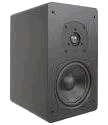1st stanza |
|
Music:
|
|
 |
|
| Lyrics: |
Pronunciation:
(*) |
Meaning: |
| Θα κεντήσω |
θa kendíso |
I will embroider |
| πάνω στου αλόγου σου
τη σέλα |
páno stu alóγu
su ti séla |
on the saddle of your horse |
| με διαμαντόπετρες
σωρό |
me δJamandópetres
soró |
with a heap of diamond stones |
| του φεγγαριού το
πήγαιν’–έλα |
tu feNgarJú to píJen éla |
the coming-and-going of the Moon |
| στο πελαγίσο το νερό. |
sto pelaJíso to neró |
on the water of the open sea. |
| Αγόρι μου, αγόρι μου, |
aγóri mu aγóri
mu |
My boy, my boy, |
| αγόρι μου, να σε
χαρώ. |
aγóri mu na se
xaró |
my boy, who gives me joy. |
|
2nd stanza |
|
Music:
|
|
 |
|
| Lyrics: |
Pronunciation:
(*) |
Meaning: |
| Θα κεντήσω |
θa kendíso |
I will embroider |
| στ’ ασημοπίστολά σου
πλάι |
st asimopístolá su
plái |
next to your silver pistols |
| της χελιδόνας το
φτερό |
tis CeLiδónas
to fteró |
the wing of the swallow |
| κ’ ένα σταυρό να σε
φιλάει |
c éna stavró na se filái |
and a cross to keep guard over you |
| τις νύχτες που σε
καρτερώ. |
tis ñíxtes pu se karteró |
during the nights that I wait for
you. |
| Αγόρι μου, αγόρι μου, |
aγóri mu aγóri
mu |
My boy, my boy, |
| αγόρι μου, να σε
χαρώ. |
aγóri mu na se
xaró |
my boy, who gives me joy. |
|
3rd stanza |
|
Music:
|
|
 |
|
| Lyrics: |
Pronunciation:
(*) |
Meaning: |
| Θα κεντήσω |
θa kendíso |
I will embroider |
| πάνω στο δίκοπό σου
λάζο |
páno sto δíkopó
su lázo |
on your double-edged sword |
| το βλέμμα σου το
καθαρό |
to vléma su to kaθaró |
your crystal-clear look |
| αυτό το βλέμμα το
γαλάζο |
aftó to vléma to γalázo |
this look that’s sky-blue |
| που δεν χορταίνω να
θωρώ. |
pu δen
xorténo na θoró |
which I never have enough of seeing. |
| Αγόρι μου, αγόρι μου, |
aγóri mu aγóri
mu |
My boy, my boy, |
| αγόρι μου, να σε
χαρώ. |
aγóri mu na se
xaró |
my boy, who gives me joy. |
|
|
|
(*) For an explanation of the pronunciation symbols, see
this page. The only
deviations, for the sake of avoiding confusion, are:
- the symbol L (instead of K) is used for the
palatal lateral approximant,
- ñ
is used instead of #,
- δ is used instead of D,
- θ is used instead of T,
- γ is used instead of +,
and
- G is used instead of ].
|
![]() A note on copyright issues:
A note on copyright issues:


